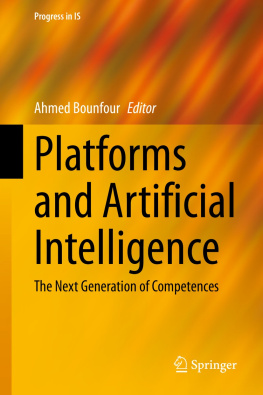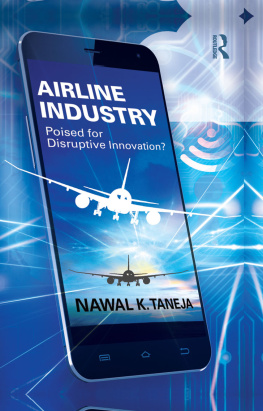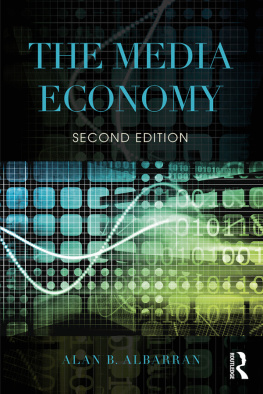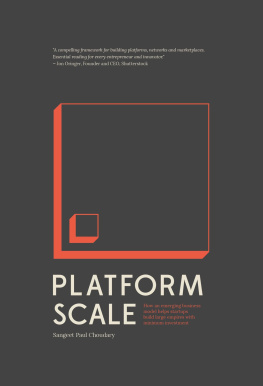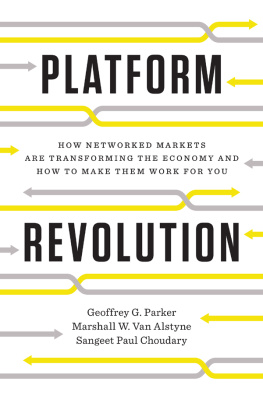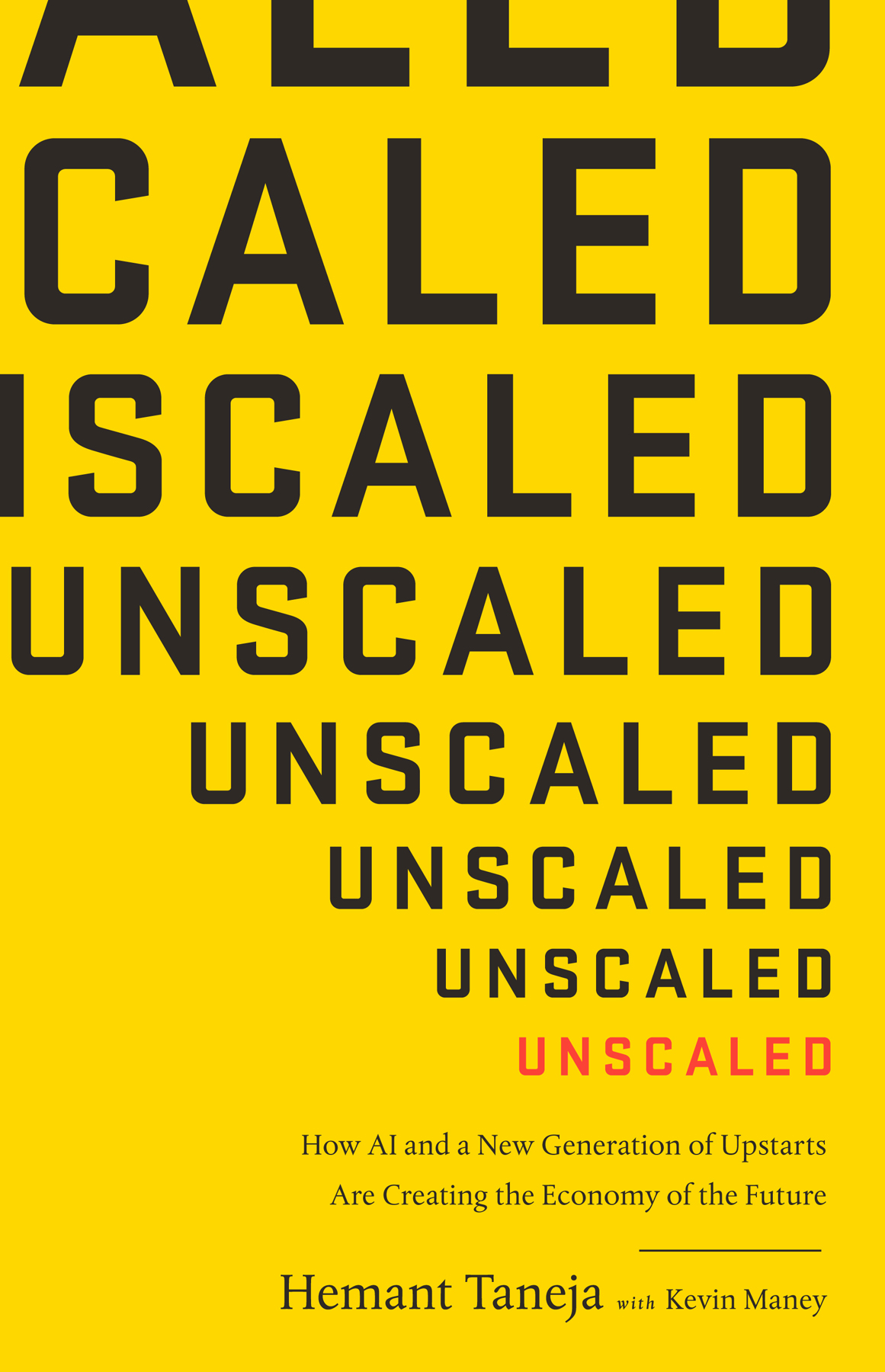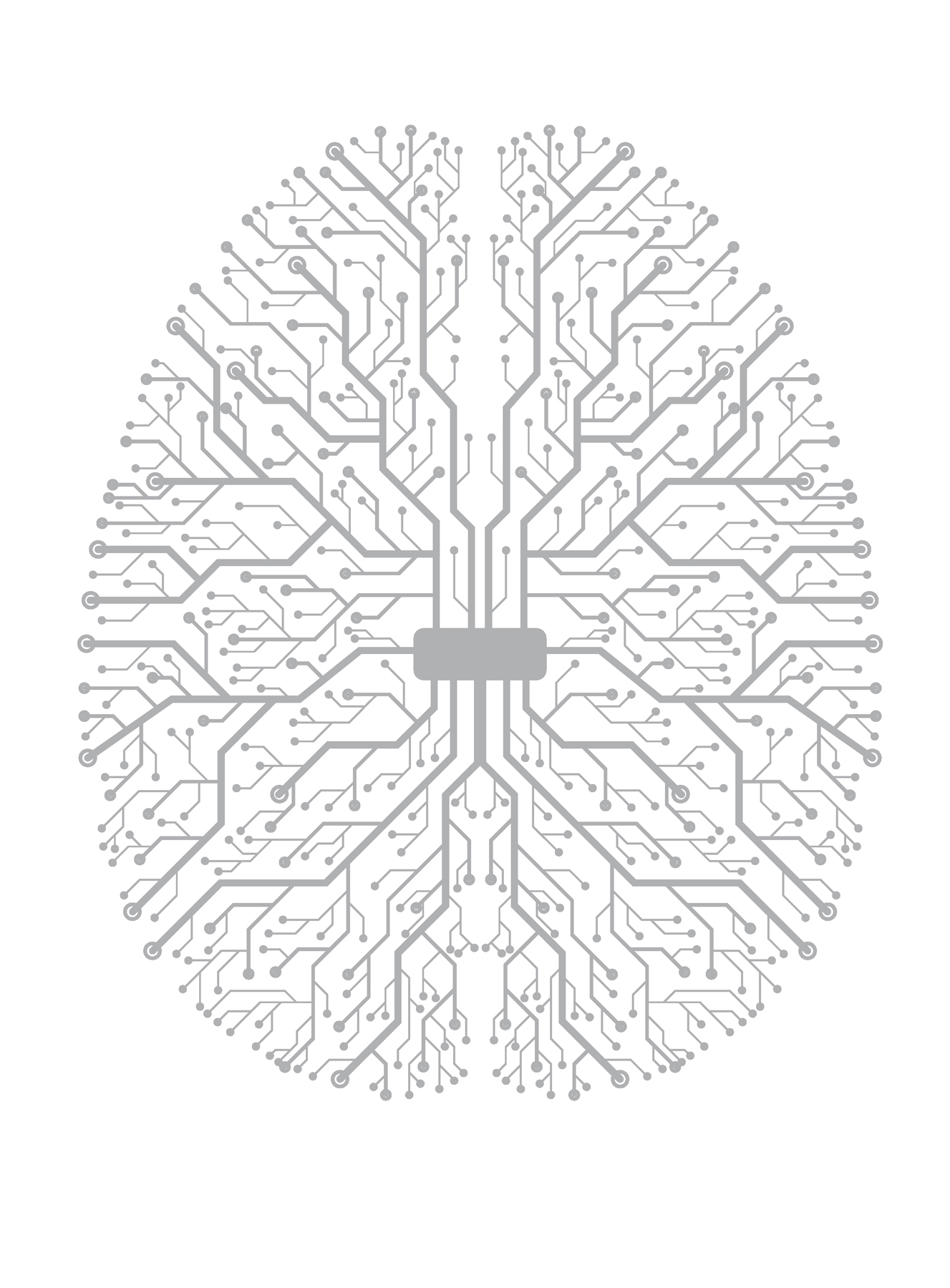Copyright 2018 by Hemant Taneja
Hachette Book Group supports the right to free expression and the value of copyright. The purpose of copyright is to encourage writers and artists to produce the creative works that enrich our culture.
The scanning, uploading, and distribution of this book without permission is a theft of the authors intellectual property. If you would like permission to use material from the book (other than for review purposes), please contact permissions@hbgusa.com . Thank you for your support of the authors rights.
PublicAffairs
Hachette Book Group
1290 Avenue of the Americas, New York, NY 10104
www.publicaffairsbooks.com
@Public_Affairs
First Edition: March 2018
Published by PublicAffairs, an imprint of Perseus Books, LLC, a subsidiary of Hachette Book Group, Inc. The PublicAffairs name and logo is a trademark of the Hachette Book Group.
The Hachette Speakers Bureau provides a wide range of authors for speaking events. To find out more, go to www.hachettespeakersbureau.com or call (866) 376-6591.
The publisher is not responsible for websites (or their content) that are not owned by the publisher.
Library of Congress Cataloging-in-Publication Data
Names: Taneja, Hemant, author.
Title: Unscaled : how AI and a new generation of upstarts are creating the economy of the future / Hemant Taneja with Kevin Maney.
Description: First Edition. | New York : PublicAffairs, 2018. | Includes bibliographical references and index.
Identifiers: LCCN 2017042248 | ISBN 9781610398121 (hardback) | ISBN 9781610398138 (ebook)
Subjects: LCSH: AutomationEconomic aspects. | Artificial intelligenceEconomic aspects. | BISAC: BUSINESS & ECONOMICS / Entrepreneurship. | BUSINESS and ECONOMICS / Economic Conditions.
Classification: LCC HC79.A9 T36 2018 | DDC 338/.064dc23
LC record available at https://lccn.loc.gov/2017042248
ISBNs: 978-1-61039-812-1 (hardcover), 978-1-61039-813-8 (ebook)
E3-20180223-JV-PC
To my partners at General Catalyst
T hroughout the twentieth century, technology and economics drove a dominant logic: bigger was almost always better. Around the world the goal was to build bigger corporations, bigger hospitals, bigger governments, bigger schools and banks and farms and electric grids and media conglomerates. It was smart to scale upto take advantage of classic economies of scale.
In the twenty-first century, technology and economics are driving the oppositean unscaling of business and society. This is far more profound than just startups disrupting established firms. The dynamic is in the process of unraveling all the previous centurys scale into hyperfocused markets. Artificial intelligence (AI) and a wave of AI-propelled technologies are allowing innovators to effectively compete against economies of scale with what I call the economies of unscale. This huge shift is remaking massive, deeply rooted industries such as energy, transportation, and healthcare, opening up fantastic possibilities for entrepreneurs, imaginative companies, and resourceful individuals.
If you feel that work, life, and politics are in disarray, this transformation is why. We are experiencing change unlike any since around 1900, when, as I will detail later, a wave of new technologies, including the car, electricity, and telecommunication, transformed work and life. Right now we are living through a similar ground-shaking tech wave, as AI, genomics, robotics, and 3D printing charge into our lives. Artificial intelligence is the primary driver, changing almost everything, much like electricity did more than one hundred years ago. We are witnessing the birth of the AI century.
In an economy driven by AI and digital technology, small, focused, and nimble companies can leverage technology platforms to effectively compete against big, mass-market entities. The small can do this because they can rent scale that companies used to need to build. The small can rent computing in the cloud, rent access to consumers on social media, rent production from contract manufacturers all over the worldand they can use artificial intelligence to automate many tasks that used to require expensive investments in equipment and people.
Because AI is software that learns, it can learn about individual customers, allowing companies built on rentable tech platforms to easily and profitably make products that address very narrow, passionate marketseven markets of one. The old mass markets are giving way to micromarkets. This is the essence of unscaling: technology is devaluing mass production and mass marketing and empowering customized microproduction and finely targeted marketing.
The old strategy of beating competitors by owning scale has in many cases become a liability and burden. Procter & Gamble, with all its magnificent resources, finds itself vulnerable to a newcomer like the Dollar Shave Club, which can rent much of its capabilities, get to market quickly, target a narrow market segment, and change course easily if necessary. General Motors finds itself chasing Tesla. Giant hospital chains dont know how to respond to AI-driven apps that target patients with a specific condition such as diabetes. The economies of unscale are turning into a competitive edge.
In my work investing in startups as a venture capitalist, unscaling has become my central investment philosophy. I fund or help build companies that can take advantage of AI and other compelling new technologies such as robotics and genomics to peel away business and customers from scaled-up incumbents. By adhering to the philosophy of unscale, our firm has invested early in groundbreaking companies such as Snap, Stripe, Airbnb, Warby Parker, and The Honest Company. Unscaling has also led me to help nonprofit organizations such as Khan Academy and Advanced Energy Economy, which are reimagining the institutions of education and electric utilities, respectively. My activities have given me both a broad and a deep view into unscaling, helping me to see the big picture.
The story of one of my companies, Livongo, provides insight into the dynamics set in motion by AI and unscaling. Livongo (life on the go) points to the way unscaling can drive down the costs of healthcare while increasing effectiveness. The United States spends more on healthcare than any other nation$3.5 trillion annually, about 18 percent of gross domestic product. Citizens, corporate leaders, and politicians desperately want to get those costs under control but dont want to lose any quality of our healthcare. AI and unscaling can help in part by turning healthcare more toward personalized medicine that can help prevent more people from getting sick in the first place.
In 2014 I helped Glen Tullman get Livongo off the ground, and hes been the driving force leading the company as its CEO. Tullman was born near Chicago and in college studied economics and anthropology, a somewhat unusual background for a CEO who has made his mark in technology. After completing his education Tullman went on to run a couple of software companies and then in 1997 landed the job of turning around a struggling company called Allscripts. Founded in 1982 as Medic Computer Systems, Allscripts had bounced around for more than a decade as a maker of software for medical practices. Tullman and his team refocused Allscripts on software that lets physicians securely write prescriptions electronically. After spending two years improving Allscripts, Tullman took the company public at a $2 billion valuation, remaining as CEO until 2012.



